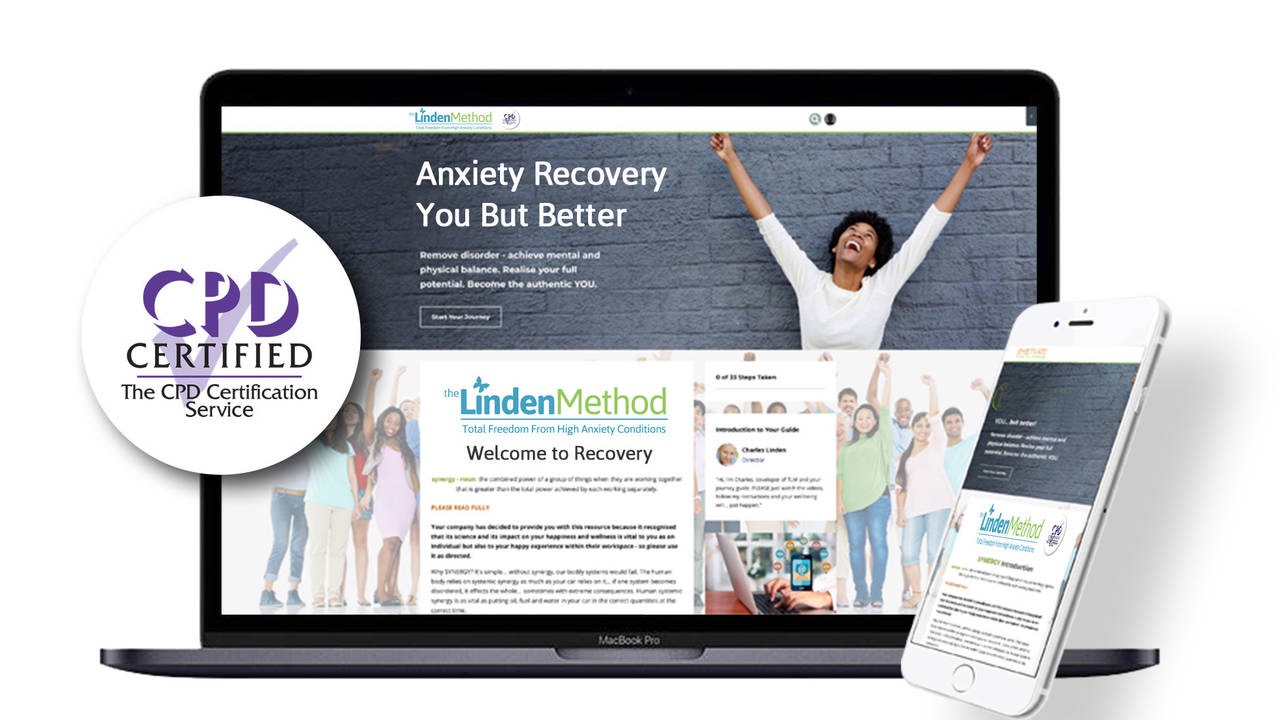Anxiety Disorder Symptoms Explained & Removed

Anxiety Disorder Symptoms
WHAT ARE ANXIETY DISORDER SYMPTOMS & WHAT CAN YOU DO ABOUT THEM?
"Anxiety symptoms can be terrifying, frustrating and overwhelming, but NOT harmful...
 The information you are about to read is the most important information and solution to anxiety disorders and it's symptoms that I have ever come across. The treatment of anxiety disorders and symptoms isn't complex; in fact it's very simple. I never thought it was possible that a disorder like anxiety that is considered to be so complex can be cured so simply - now I help people become 100% anxiety free."
The information you are about to read is the most important information and solution to anxiety disorders and it's symptoms that I have ever come across. The treatment of anxiety disorders and symptoms isn't complex; in fact it's very simple. I never thought it was possible that a disorder like anxiety that is considered to be so complex can be cured so simply - now I help people become 100% anxiety free."
Jenny Saunders BSc, MSc Psychologist
First of all, please let me be clear on this. The sensations and thoughts you experience during high anxiety are NOT anxiety 'symptoms' at all, but the normal, expected physical reactions to high anxiety (the emotion of fear).
Symptoms are signs of illness... you are NOT ill. For ease, however, I will continue to call these thoughts and sensations symptoms. Anxiety symptoms are the result of an abnormal increase in the levels of adrenaline in the blood, which sets off a 'chain reaction' of normal, but inappropriate, bodily functions.
Anxiety symptoms can affect a sufferer both physically and emotionally, but it is important to note that none of these anxiety symptoms represents a threat to a sufferer. Anxiety symptoms are caused by an exaggerated emotional response, which is controlled by the subconscious mind. The Amygdala assists in controlling anxiety levels.
Your anxiety condition has three major components that determine the kind of anxiety symptoms experienced:
Firstly, there is a psycho-physiological (physical) component, which produces anxiety symptoms such as palpitations (racing heart), breathlessness, dizziness and sweating. This component produces anxiety symptoms which affect us on a purely physiological level and are mostly as a direct result of adrenalin released during the 'fight or fight' response.
Secondly, there is a psychological component, characterised by anxiety symptoms such as irritability, obsessions, loss of concentration and deep feelings of fear. These anxiety symptoms may be constant, or may be more intense during an anxiety attack (panic attack). Like the physiological anxiety symptoms, these are harmless, but they can make the sufferer feel helpless and desperate.
Thirdly, there may be an interpersonal component featuring an inclination to cling to other people for reassurance. Because anxiety symptoms cause such a vast range of sensations and thoughts, the sufferer often withdraws socially in order to protect themselves from potentially anxiety-provoking situations and stimuli. This can cause agoraphobia, a condition, which is commonly referred to as a 'stand alone' condition as opposed to an anxiety symptom.
Agoraphobia, like all anxiety conditions, disappears as the anxiety level is reduced during recovery. None of our clients remain agoraphobic after recovery is completed.
Common Anxiety Symptoms
Smothering sensations and shortness of breath
Racing heart, slow heart beat, palpitations
Chest Pain
Globus Hystericus - 'Lump in throat' and difficulty swallowing
Blanching (colour loss in the skin)
Excessive Perspiration (sweating)
Shaking or shivering (visibly or internally)
Pain or numbness in the head, face, arms, neck or shoulders
Rapid gastric emptying
Indigestion, heartburn, constipation and diarrhoea
Sexual Dysfunction
Symptoms of urinary tract infection
Increased need to urinate
Skin rashes
Weakness/tingling in arms, hands or feet
'Electric shock' feelings (anywhere in the body)
Dry mouth
Insomnia
Nightmares
Fears of going mad or losing control
Increased depression and suicidal feelings
Aggression
Symptoms like 'flu'
Distorted vision
Disturbed hearing
Hormone problems
Headaches and feelings of having a 'tight band around head'
Sore eyes
Agoraphobia
Hallucinations
'Creeping' or 'pins and needles' sensations in the skin
Increased sensitivity to light, sound, touch, and smell
Hyperactivity
Dramatic increase in sexual feelings
Pain in the face or jaw (resembling toothache)
Derealisation and Depersonalisation
Panic Attacks
OCD - Obsessive thoughts and compulsions
Pure O - Inappropriate/strange thoughts
You see, anxiety is an emotion (fear), like happiness or sadness but, because anxiety produces some fairly intense physical and emotional responses due to its 'physical' nature, the sufferer becomes trapped in a cycle of fear and anxiety symptoms.
If fear didn't FEEL extreme it could be ignored which would be so dangerous... no one wants to ignore a speeding bus, a tiger or a man with a gun!
Anxiety symptoms cannot cause any actual harm as they are simply exaggerated experiences of normal bodily sensations and reactions. However, if anxiety symptoms intensify and interfere with normal day-to-day activities, it is necessary to take appropriate action to eliminate them before they become too intrusive or dramatically reduce the sufferer's experience of life.
By following our structured, simple but supportive programme, it is possible to reverse the formation of anxiety symptoms and erase any inappropriate anxiety completely and permanently and tens of thousands of our ex clients stand as testimony to that fact... they have experienced a programme that forces the ONLY possible anxiety elimination mechanism in the brain to activate.
So what is the solution to anxiety disorder?
The anxiety symptoms raged in me, but the doctors were hopeless, frustrated and useless. Our NHS trials showed them that the success rate is as high as we claim, that their clients would recover as promised and that working with us would expedite and increase their client's recover rates.
Our claims are grandiose because our results are... a fact of which we are very proud."
Charles Linden
Director LTE



